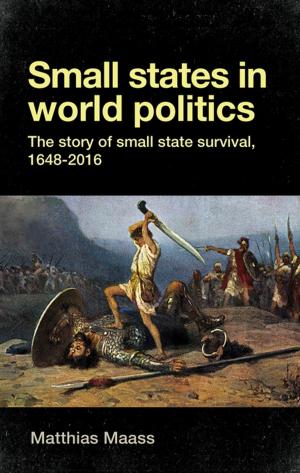The naval war film
Genre, history and national cinema
Fiction & Literature, Literary Theory & Criticism, European, Nonfiction, Social & Cultural Studies, Social Science, Cultural Studies, Popular Culture| Author: | Jonathan Rayner | ISBN: | 9781847796257 |
| Publisher: | Manchester University Press | Publication: | July 19, 2013 |
| Imprint: | Manchester University Press | Language: | English |
| Author: | Jonathan Rayner |
| ISBN: | 9781847796257 |
| Publisher: | Manchester University Press |
| Publication: | July 19, 2013 |
| Imprint: | Manchester University Press |
| Language: | English |
This book undertakes a unique, coherent and comprehensive consideration of the depiction of naval warfare in the cinema. The films under discussion encompass all areas of naval operations in war, and highlight varying institutional and aesthetic responses to navies and the sea in popular culture. The examination of these films centres on their similarities to and differences from the conventions of the war genre and seeks to determine whether the distinctive characteristics of naval film narratives justify their categorisation as a separate genre or sub-genre in popular cinema. The explicit factual bases and drama-documentary style of many key naval films, such as In Which We Serve, They Were Expendable and Das Boot, also requires the consideration of these films as texts for popular historical transmission. Their frequent reinforcement of establishment views of the past, which derives from their conservative ideological position towards national and naval culture, makes these films key texts for the consideration of national cinemas as purveyors of contemporary history as popularly conceived by filmmakers and received by audiences.
This book undertakes a unique, coherent and comprehensive consideration of the depiction of naval warfare in the cinema. The films under discussion encompass all areas of naval operations in war, and highlight varying institutional and aesthetic responses to navies and the sea in popular culture. The examination of these films centres on their similarities to and differences from the conventions of the war genre and seeks to determine whether the distinctive characteristics of naval film narratives justify their categorisation as a separate genre or sub-genre in popular cinema. The explicit factual bases and drama-documentary style of many key naval films, such as In Which We Serve, They Were Expendable and Das Boot, also requires the consideration of these films as texts for popular historical transmission. Their frequent reinforcement of establishment views of the past, which derives from their conservative ideological position towards national and naval culture, makes these films key texts for the consideration of national cinemas as purveyors of contemporary history as popularly conceived by filmmakers and received by audiences.















